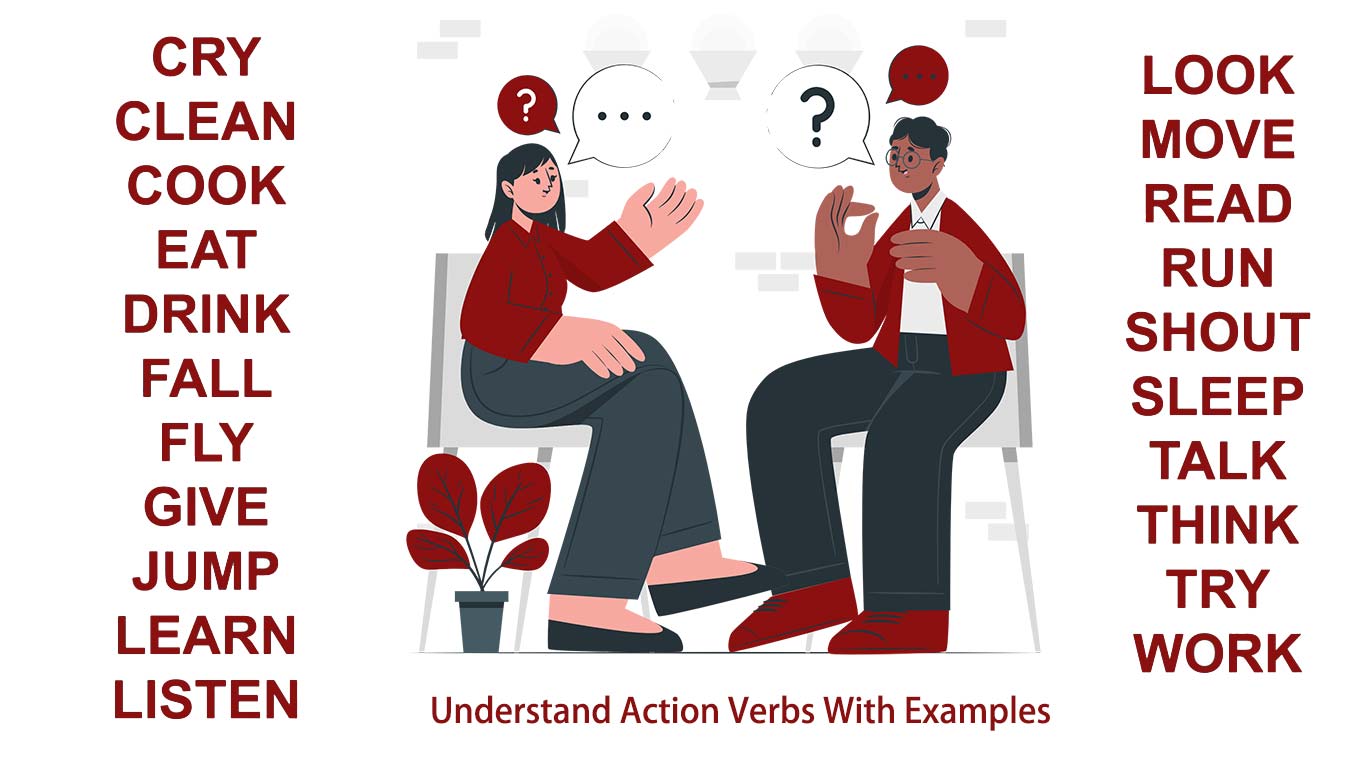Understand Action Verbs With Examples
Action verbs
Action verbs, moreover referred to as dynamic verbs, convey an action whether it be substantial or psychological. An action verb clarifies what the subject of the statement is doing or has prepared. Seeing the action verb examples assists make it obvious the purpose of action verbs in statements and what principle they serve. Action verbs are utilized to deliver significant data in a statement and insert effect and reason. These verbs have a fundamental function in grammar and indicate to the person who reads what act the subject is doing in the statement.

There are never-ending action verbs utilized in the English language. An action verb can state something that an individual, creature, or yet things can accomplish. To decide if a speech is an action verb, it is required to observe the sentence and inquire if the expression illustrates something somebody can perform or something somebody can be or sense. If it is something they can perform, in that case, it is an action verb. The action verb is important to deliver clear meaning to the reader and is impactful while delivering the required information.
Sentences with action verbs
Action verbs do not have to explain progress; the action can be psychological.
- Peter is throwing the ball.
- She accepted the job proffer.
- He thought regarding his dull mistake in the test.
- Steve visited his pal for a while and then went home.
- The dog ran throughout the street.
Action verb examples
- Andre plays football
In this expression, the verb plays states an action that Andre performs: Andre bodily participates in the game of football. Therefore “plays” is an action verb.
- Some other examples are:
- I am playing basketball with my peers
- He drove miles ahead for that performance!
- We ate dinner then completed the assignment
What are action words?
In language, action words are verbs that communicate anything that is prepared. Action words are verbs, as it might be guessed, that are words that explain actions. These are on the contrary to non-action terms, moreover described as non-action verbs, which are terms that explain a situation of being, a requirement, a view, or logic. Whenever you inscribe regarding an action that has taken place, is occurring, or is about to take place, action words are used. For example:
- I was running in the past.
- I am running at the present.
- I will run tomorrow.
There are diverse plans and kinds of actions words, and it is moreover significant to recognize how to utilize verb tenses with them correctly.
Physical action verbs
Usually talking, we speak that an action verb explains a bodily action if it talks about an action that needs progress of entities or things. Here are instances of action verbs that talk about physical activities:
- ask, turn, ascend, drive, consume, play, leave, hang
Mental action verbs
Action verbs that talk about mental activities are somewhat trickier. At initial look, several of these verbs might not appear like action verbs in any way. Though, all of these verbs can yet talk about things that an individual can accomplish. Regardless of physical actions, these verbs talk about actions that a person can make use of their intelligence to perform.
- think, dream, envisage, contemplate, think, memorize, overlook, learn by heart, study, doubt, censure



